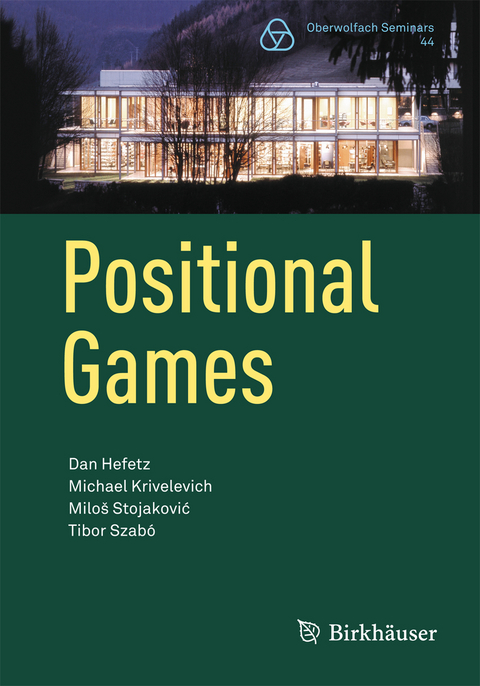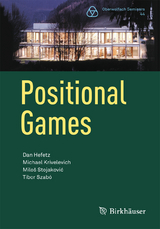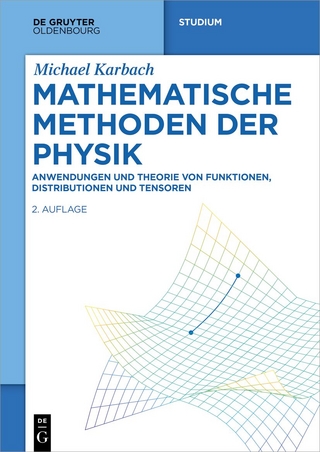Positional Games
Springer Basel (Verlag)
978-3-0348-0824-8 (ISBN)
This text is based on a lecture course given by the authors in the framework of Oberwolfach Seminars at the Mathematisches Forschungsinstitut Oberwolfach in May, 2013. It is intended to serve as a thorough introduction to the rapidly developing field of positional games. This area constitutes an important branch of combinatorics, whose aim it is to systematically develop an extensive mathematical basis for a variety of two player perfect information games. These ranges from such popular games as Tic-Tac-Toe and Hex to purely abstract games played on graphs and hypergraphs. The subject of positional games is strongly related to several other branches of combinatorics such as Ramsey theory, extremal graph and set theory, and the probabilistic method. These notes cover a variety of topics in positional games, including both classical results and recent important developments. They are presented in an accessible way and are accompanied by exercises of varying difficulty, helping the readerto better understand the theory. The text will benefit both researchers and graduate students in combinatorics and adjacent fields.
Dan Hefetz obtained his PhD in computer science at Tel Aviv University and is lecturer in pure mathematics at the University of Birmingham. Michael Krivelevich obtained his PhD in mathematics at Tel Aviv University, Israel, where he is now a full professor. Miloš Stojaković obtained his PhD in computer science at ETH Zürich, Switzerland, and is now an associate professor at the University of Novi Sad, Serbia. Tibor Szabó, who received his PhD from the Ohio State University, is a professor in the mathematics department at Freie Universität Berlin, Germany. One of their common research interests is positional games. In May 2013 they jointly organized a workshop on this topic at the Mathematisches Forschungsinstitut Oberwolfach (MFO).
Preface.- 1 Introduction.- 2 Maker-Breaker Games.- 3 Biased Games.- 4 Avoider-Enforcer Games.- 5 The Connectivity Game.- 6 The Hamiltonicity Game.- 7 Fast and Strong.- 8 Random Boards.- 9 The Neighborhood Conjecture.- Bibliography.
"The present book recalls the main points of the classical theory, and describes some recent results. The text ... can be taught in a regular university class. At the end of each chapter there are exercises that help the reader to practice the trade. The intention of that structure is to provide a textbook rather than just a pure record of the lecture notes of the Oberwolfach Seminar. It certainly can be used as a textbook ... ." (András Sándor Pluhár, Mathematical Reviews, July, 2017)
“The present book recalls the main points of the classical theory, and describes some recent results. The text … can be taught in a regular university class. At the end of each chapter there are exercises that help the reader to practice the trade. The intention of that structure is to provide a textbook rather than just a pure record of the lecture notes of the Oberwolfach Seminar. It certainly can be used as a textbook … .” (András Sándor Pluhár, Mathematical Reviews, July, 2017)
| Erscheint lt. Verlag | 3.7.2014 |
|---|---|
| Reihe/Serie | Oberwolfach Seminars |
| Zusatzinfo | X, 146 p. 13 illus., 8 illus. in color. |
| Verlagsort | Basel |
| Sprache | englisch |
| Maße | 168 x 240 mm |
| Gewicht | 325 g |
| Themenwelt | Mathematik / Informatik ► Mathematik ► Angewandte Mathematik |
| Mathematik / Informatik ► Mathematik ► Graphentheorie | |
| Schlagworte | combinatorics • Positional games • Ramsey theory • Random Graphs • Spieltheorie (mathemat.) |
| ISBN-10 | 3-0348-0824-0 / 3034808240 |
| ISBN-13 | 978-3-0348-0824-8 / 9783034808248 |
| Zustand | Neuware |
| Haben Sie eine Frage zum Produkt? |
aus dem Bereich




